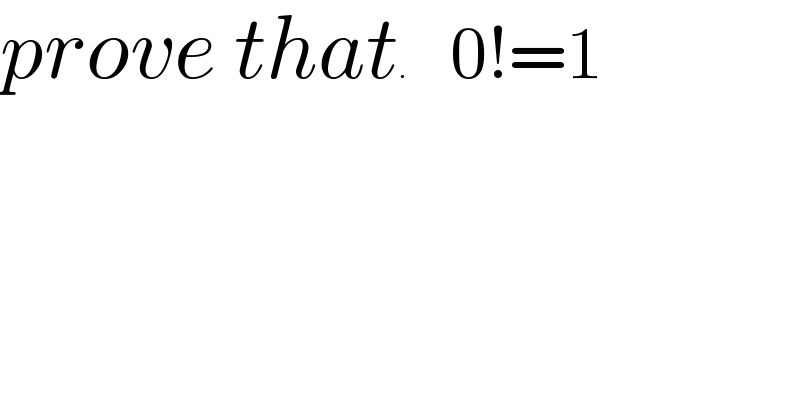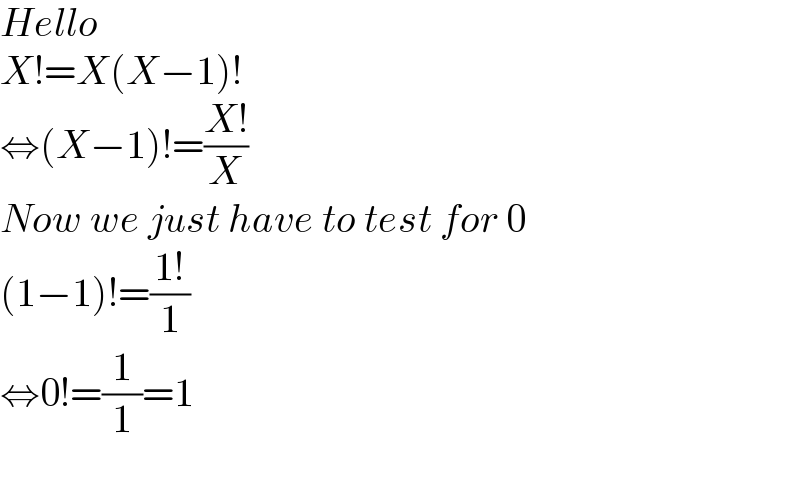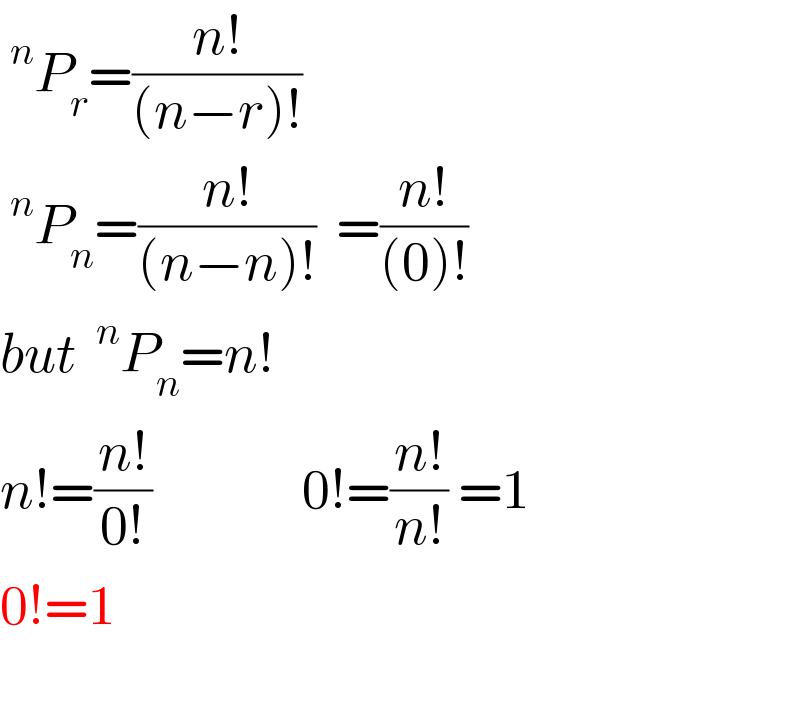Question Number 192112 by Spillover last updated on 08/May/23

Commented by Frix last updated on 08/May/23
![I think it′s defined 0!=1 There′s the idea of the “Empty Product” It′s obvious that the “Empty Sum”=0 because if we sum up nothing we still have nothing. Because the sum log x +log y =log xy we set the “Empty Product”=1 x!=Π_(k=1) ^x ⇒ 0! is the “Empty Product” But we can simply calculate backwards 3!=6 2!=((3!)/3)=2 1!=((2!)/2)=1 0!=((1!)/1)=1 [⇒ x! is not defined for x∈Z^− ]](https://www.tinkutara.com/question/Q192121.png)
Commented by Spillover last updated on 12/May/23

Answered by Skabetix last updated on 08/May/23

Answered by Spillover last updated on 12/May/23

